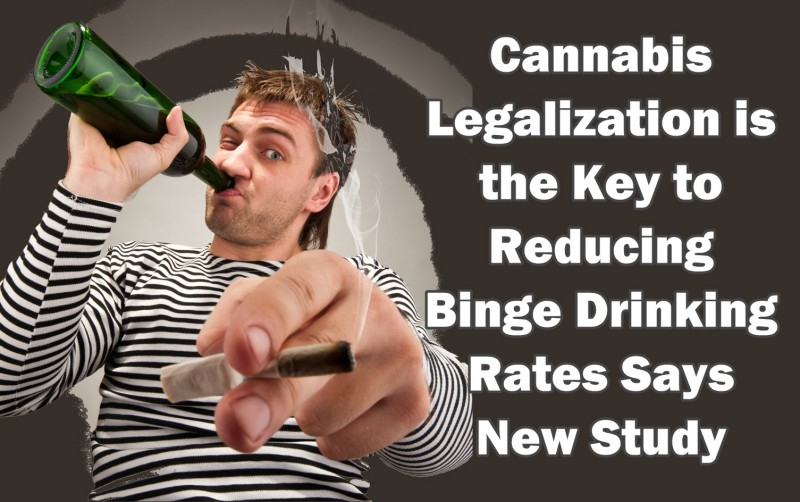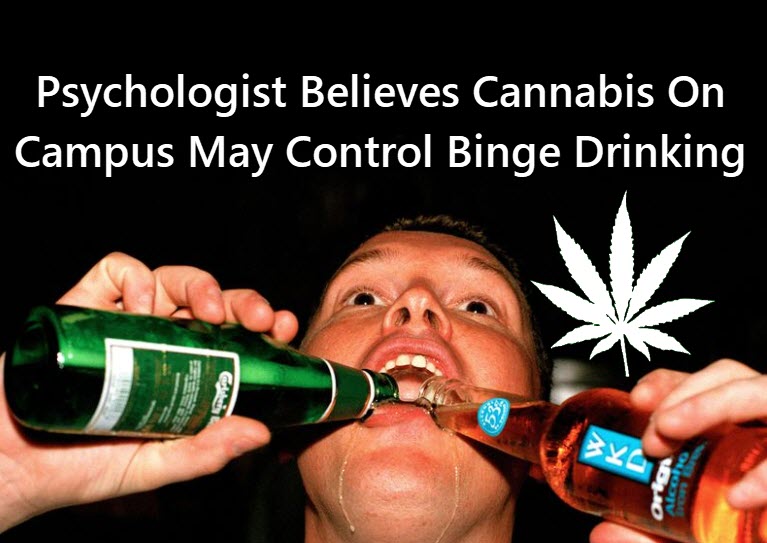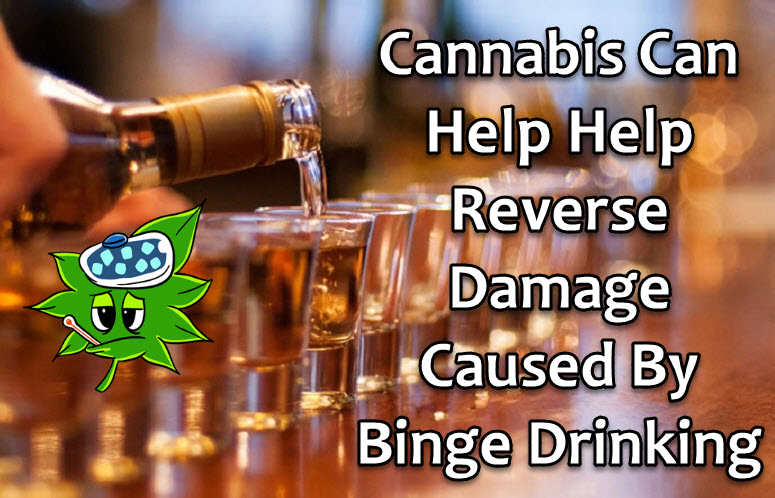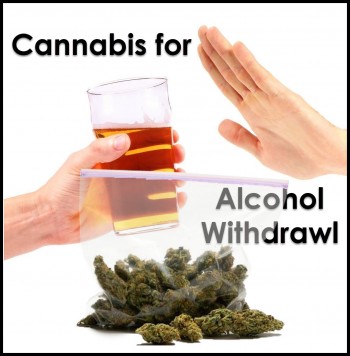Cannabis Legalization Is Key To Reducing Binge Drinking Rates, Shows New Study
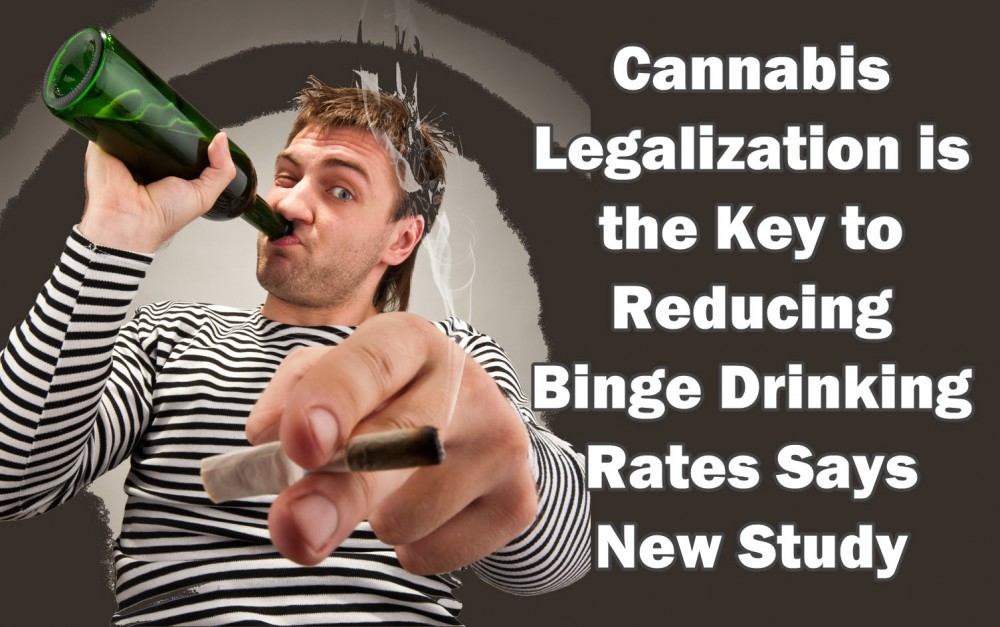
Excessive drinking is a problem in the country; according to the Centers for Disease control and Prevention, 17% of the population in the United States participate in binge drinking. That means 1 in 6 people drink at least 4 times a month.
So while most of us see those few drinks a month as harmless, what it actually does to the body is terrifying. Binge drinking is associated with serious risks, including an increased risk to sexually transmitted diseases, chronic conditions such as liver disease, stroke, high blood pressure and heart disease, cancers of the throat, mouth, liver, colon, and esophagus, alcohol dependence, and memory and learning problems.
That’s not all: it also means an added risk for accidents including falls, car crashes, and burns. Alcohol is also linked to increases in suicide, homicide, sexual assault, and intimate partner violence.
But if you think cannabis is bad for society? Think again. We can’t deny the statistics which point to cannabis legalization being the key to curbing binge drinking.
A brand new research study released by Cowen & Co, and Grand View Research, reveals that states that have legal adult-use cannabis see a 9% drop from the national average. They also found that in states with legal cannabis, excessive drinking rates are 11% less compared to states that continue to criminalize cannabis.
It’s also interesting to note their findings regarding Washington, one of the first states to legalize cannabis recreationally. Specifically, Washington reports that less than 15% of adults admit to having at least 4 drinks on a singular occasion within the last month, while the national average is 17.5%.
In 2017, a Yahoo News survey revealed that most of the 55 million recreational cannabis consumers in the United States are millennials. They found that the rates of young college students who consume booze on a daily basis reduced from 4.3% in 2016, to just 2.2% in 2017.
Additionally, the analysts say that the global legal cannabis market will reach a cool $66.3 billion by the time 2025 is over. But Big Alcohol will have some catching up to do if they intend to make as much money as before, as cannabis poses a serious threat to the industry especially as more states legalize cannabis recreationally.
Cannabis Also Helps Prevent and Treat Liver Disease
Aside from giving adults a safer alternative for getting intoxicated, cannabis can also help treat the diseases that are brought on by binge drinking. In 2018, a study analyzing 32,000 people who have a history of excessive alcohol drinking found that the drinkers who also consumed cannabis showed a reduced risk for alcohol liver disease. They also found that in the group, the heaviest cannabis consumers had the least chance of getting alcohol liver disease in their lifetime.
So how exactly does cannabis help with reducing alcohol liver disease?
It’s the plant’s potent anti-inflammatory properties.
The liver actually has its own cannabinoid receptors, and this is why cannabis has been proven so beneficial for those with liver disease. Consuming cannabis nips inflammation in the bud, thus slowing down progression of liver disease.
However, finding out exactly what kind of cannabis was consumed remains unknown.
“Our studies could not ascertain which cannabis strains were used,” Dr. Terence Bukong, a study author, disclosed to Healthline. “So we couldn’t determine the cannabinoid content of what each individual ingested. We also couldn’t ascertain the dosage or modes of use, although it’s most likely through smoking.”
Bukong also says that he believes cannabis-based treatment will be developed soon, for treating different kinds of liver diseases. He and his team are already working on a formulation for certain diseases but he did say that cannabis may not be beneficial for all kinds of liver disease. For instance, patients with Hepatitis C may suffer from more scarring if they consume a lot of cannabis. “There are many substances in cannabis and it could be one that is really bad for the liver while another is beneficial,” explained gastroenterologist Dr. Hardeep Singh, from the St. Joseph Hospital. “The take-home point is that more research is needed because we need data on both sides, good and bad.”
BINGE DRINKING AND WEED, READ MORE..
BINGE DRINKING ON CAMPUS AND HOW TO STOP IT?
